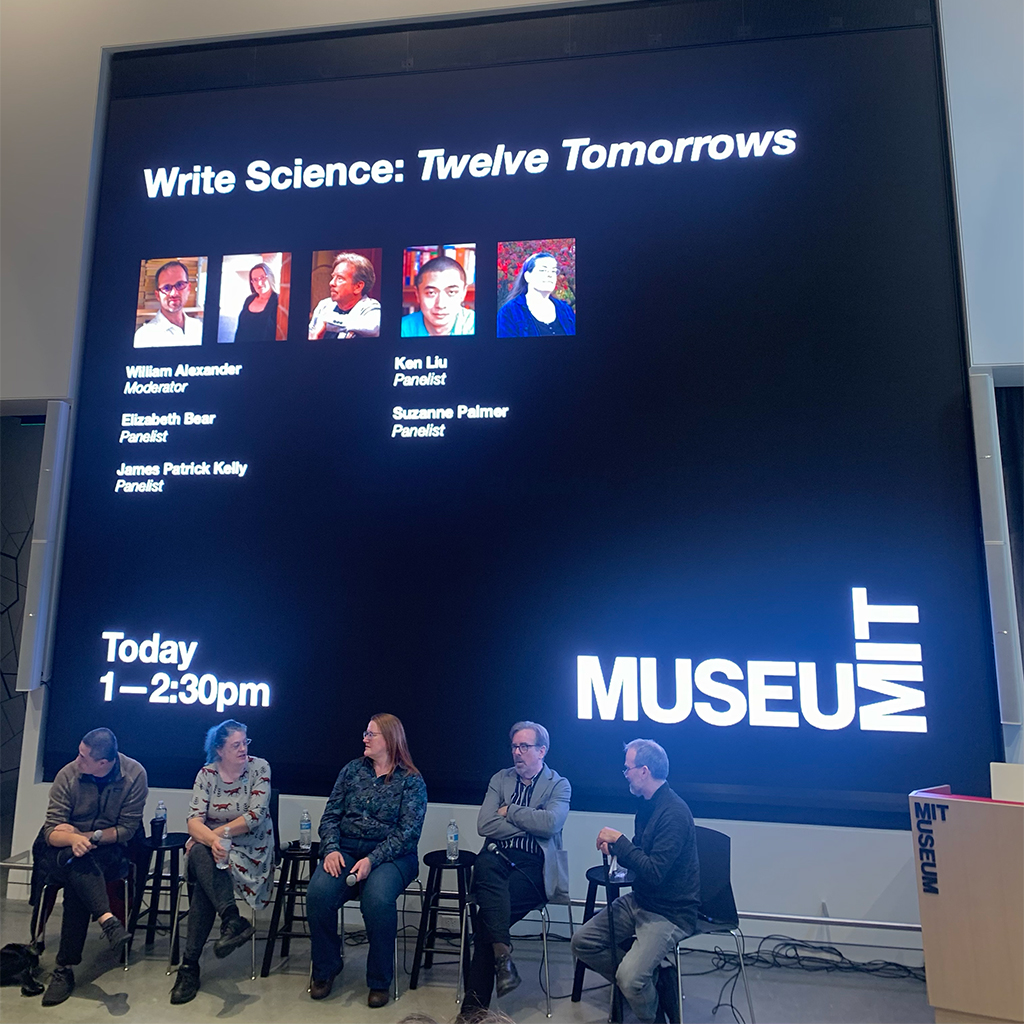-
Toyota Land Cruiser 70 Series เอสยูวีสายลุยกลับมาขายในญี่ปุ่นอีกครั้ง ราคาเรื่มที่ 1.14 ล้านบาท

หลังจากที่ทาง Toyota ได้เผยโฉม Toyota Land Cruiser 70 Series MY2024 รถเอสยูวีสายลุยรุ่นอัปเกรดปรับปรุงใหม่ โดยในรถรุ่นนี้ปัจจุบันจะถูกทำตลาดในแอฟฟริกาใต้, ออสเตรเลีย, แคนาดา และตะวันออกกลาง ล่าสุดได้เตรียมกลับมาทำตลาดในบ้านเกิดญี่ปุ่นอีกครั้ง หลังจากที่ยุติการจำหน่ายในญี่ปุ่นไปในช่วงปี 2015 เนื่องจากเหตุผลเรื่องข้อบังคับด้านความปลอดภัย สำหรับ Toyota Land Cruiser 70 Series เป็นรถเอสยูวีสายลุยมาในรูปแบบทรงเรโทรอันเป็นเอกลักษณ์ประจำตัว โดยในรุ่นปรับปรุงใหม่ครั้งนี้ จะเป็นการปรับใหม่ใหม่ครั้งที่ 4 นับตั้งแต่เปิดตัวครั้งแรกในปี 1984 โดยในเวอร์ชันที่นำมาวางขายในญี่ปุ่นจะเป็นรุ่นตัวถัง 5 ประตู โดยมีมิติตัวถังความยาวยู่ที่ 4,890 มม. ความกว้าง 1,870 มม. ความสูง 1,920 มม. และมีระยะฐานล้อ 2,730 มม. ในด้านงานออกแบบยังคงความคลาสสิกของภาพลักษณ์รถสไตล์เรโทรเอาไว้อย่างครบถ้วน แต่จะผสานกับเทคโนโลยี และออปชั่นสมัยใหมเข้าไปอย่างลงตัวเริ่มจาก จะได้รับกระจังหน้าสีเหลี่ยมสีดำลายรังผึ้งทรงใหม่ มาพร้อมชุดไฟหน้า LED ทรงกลมที่ฝังอยู่ด้านข้างทั้ง 2 ฝั่ง พร้อมมีไฟเลี้ยวใหม่ขนาดใหญ่ที่ยื่นออกมาด้านข้างตัวรถเหมือนรถแบบดั้งเดิม นอกจากนั้นยังติดตั้งกระจกเสริมที่มุมด้านหน้าบังโคลนซ้าย …
-
LLC 2023: 21 गेंदों में 98 रन! 40 साल के बल्लेबाज ने ठोका तूफानी शतक, क्रिकेट जगत में मचाया तहलका

Dwayne Smith Century: लीजेंड्स लीग क्रिकेट 2023 अब अपने नॉकआउट मुकाबलों में पहुंच चुका है. अर्बनराइजर्स हैदराबाद और मणिपाल टाइगर्स के बीच टूर्नामेंट का पहला क्वालीफायर मैच सूरत के लालाभाई कॉन्ट्रेक्टर स्टेडियम में खेला गया. इस मैच में सुरेश रैना की कप्तानी वाले हैदराबाद ने मणिपाल को 75 रनों के बड़े मार्जिन से हराया. हैदराबाद…
-
58 Travel Products That Are Just Too ~Plane~ Good To Leave Home Without

I snagged this backpack after hearing my colleague Chelsea Stuart sing its praises. I had a trusty (now discontinued) InCase backpack I used as a personal item and served me well on dozens of trips for about five years. But I wanted a bag for some upcoming travel (2.5 weeks in Europe with *just* carry-on…
-
Student-run food pantry at Iowa State changing the stigma around food insecurity

31% of Iowa State students are food insecure, according to a 2021 study. AMES, Iowa — College students have many stressors in their lives, from building relationships, to paying for gas and a roof over their heads. But unfortunately, access to food can be a concern as well. That’s why a student-run food pantry at…
-
แอกซ่า ปิดดีลรถอีวีฉางอาน เป้าเบี้ยประกันปีหน้าเกือบ 7 พันล้านโต 15%

Photo by Priscilla Du Preez on Unsplash แอกซ่าประกันภัย ปิดดีลรับประกันรถอีวี “ฉางอาน” กุมพอร์ต 5 ค่ายรถยนต์ ครบแบรนด์ “ยุโรป-ญี่ปุ่น-จีน” ปีนี้พอร์ตรถ EV ในมือ 8,900 คัน สัดส่วน 5-6% ของเบี้ยรวม เคลมต่ำ 60% ยืนยันไม่แข่งราคา ชูจุดขายให้ฟรีความเสียหายสายชาร์จ-เครื่องชาร์จ มั่นใจเบี้ยสิ้นปีเข้าเป้า 6 พันล้านบาท ปีหน้าโต 12-15% เบี้ยเกือบ 7 พันล้านบาท วันที่ 6 ธันวาคม 2566 นายโคลด เซนย์ ประธานเจ้าหน้าที่บริหาร บริษัท แอกซ่าประกันภัย จำกัด (มหาชน) หรือ AXA เปิดเผยว่า การรับประกันภัยรถยนต์ไฟฟ้า (EV) ถือเป็นแนวทางการทำธุรกิจของแอกซ่าอยู่แล้ว เพียงแต่จะไม่ใช่ผู้เล่นที่ลงไปเแข่งขันด้านราคา เพราะไม่มีความยั่งยืน แต่จะมุ่งเน้นส่งเสริมด้านคุณภาพผลิตภัณฑ์ด้วยความคุ้มครองเสริมเข้าไปให้กับลูกค้า…
-
เจียไต๋ฟาร์มพร้อมส่งฟาร์มสุขภาพดี ด้วยชุดของขวัญความหมายดีแทนใจ

ธุรกิจ6 ธ.ค. 66 10:00 เจียไต๋ฟาร์ม โดยกลุ่มบริษัท เจียไต๋ ผู้นำธุรกิจนวัตกรรมการเกษตรของไทย ร่วมฉลองเทศกาลคริสต์มาสและนับถอยหลังเข้าสู่ปีใหม่ 2567 ด้วยชุดของขวัญแสนพิเศษ ส่งมอบฟาร์มสุขภาพดีให้คนที่คุณรักและห่วงใย ในรูปแบบกระเช้าของขวัญ โดยสามารถเลือกจัดชุดได้ตามความต้องการ ไม่ว่าจะเป็นผลิตผลสดๆ จากฟาร์ม อาทิ เมล่อนมรกต เนื้อหวานกลิ่นหอมชวนติดใจ, ฟักทองมินิบอล เนื้อแน่น หวาน ฟักทองลูกเล็กแต่ความอร่อยไม่เล็ก และ ฟักทองบัตเตอร์นัท รสชาติหวานมัน เต็มไปด้วยคุณประโยชน์ รวมถึงเมล็ดพันธุ์ผัก เมล็ดพันธุ์ดอกไม้ และวัสดุปลูก ครบครันเรื่องฟาร์มสุขภาพดีที่ใครได้รับต้องประทับใจ ทั้งนี้ ผู้ที่สนใจสามารถสั่งซื้อได้ที่ร้านเจียไต๋ ฟาร์ม อีทเทอรี่ สุขุมวิท 60 หรือทาง Line @chiataifarm Facebook: https://www.facebook.com/ChiaTaiFarmTH และโทร 089-139-6170 ที่มา: เจียไต๋ เจียไต๋
-
เจียไต๋ฟาร์มพร้อมส่งฟาร์มสุขภาพดี ด้วยชุดของขวัญความหมายดีแทนใจ

ธุรกิจ6 ธ.ค. 66 10:00 เจียไต๋ฟาร์ม โดยกลุ่มบริษัท เจียไต๋ ผู้นำธุรกิจนวัตกรรมการเกษตรของไทย ร่วมฉลองเทศกาลคริสต์มาสและนับถอยหลังเข้าสู่ปีใหม่ 2567 ด้วยชุดของขวัญแสนพิเศษ ส่งมอบฟาร์มสุขภาพดีให้คนที่คุณรักและห่วงใย ในรูปแบบกระเช้าของขวัญ โดยสามารถเลือกจัดชุดได้ตามความต้องการ ไม่ว่าจะเป็นผลิตผลสดๆ จากฟาร์ม อาทิ เมล่อนมรกต เนื้อหวานกลิ่นหอมชวนติดใจ, ฟักทองมินิบอล เนื้อแน่น หวาน ฟักทองลูกเล็กแต่ความอร่อยไม่เล็ก และ ฟักทองบัตเตอร์นัท รสชาติหวานมัน เต็มไปด้วยคุณประโยชน์ รวมถึงเมล็ดพันธุ์ผัก เมล็ดพันธุ์ดอกไม้ และวัสดุปลูก ครบครันเรื่องฟาร์มสุขภาพดีที่ใครได้รับต้องประทับใจ ทั้งนี้ ผู้ที่สนใจสามารถสั่งซื้อได้ที่ร้านเจียไต๋ ฟาร์ม อีทเทอรี่ สุขุมวิท 60 หรือทาง Line @chiataifarm Facebook: https://www.facebook.com/ChiaTaiFarmTH และโทร 089-139-6170 ที่มา: เจียไต๋ เจียไต๋
-
CULTURA. Prefeitura divulga resultado final com os 14 projetos que receberão recursos do “Funcultura”

Da Secretaria de Comunicação da Prefeitura Municipal A Prefeitura de Santa Maria, por meio da Secretaria da Cultura, divulga o resultado final dos projetos selecionados pelo Funcultura Empreendedorismo Criativo. Além da iniciativas selecionadas, há uma relação dos suplentes na classificação geral. A lista completa está neste link e no final do texto, no arquivo em…
-
Aaron Bradshaw teams up with RAC Recovery to spread mental health, substance abuse awareness

Today in “Why NIL is good for college athletics”, Kentucky Basketball freshman Aaron Bradshaw is positively using his influence. The 7-foot-1 center announced on Monday that he has teamed up with RAC Recovery (Robert Alexander Center for Recovery) to help promote mental health and substance abuse awareness in the state of Kentucky. Bradshaw posted a…
-
Technology is key to understanding humanity, starting with the bad stuff, sci-fi writers tell us

Tuesday, December 5, 2023 Authors in a panel Saturday at The MIT Museum in Cambridge (Photo: Madeleine Aitken) In a world harried by automation and innovation, science fiction books can provide a lens through which to examine the relationship between technology and humanity – as Hugo Award-winning science fiction authors Elizabeth Bear, Suzanne Palmer, Ken…